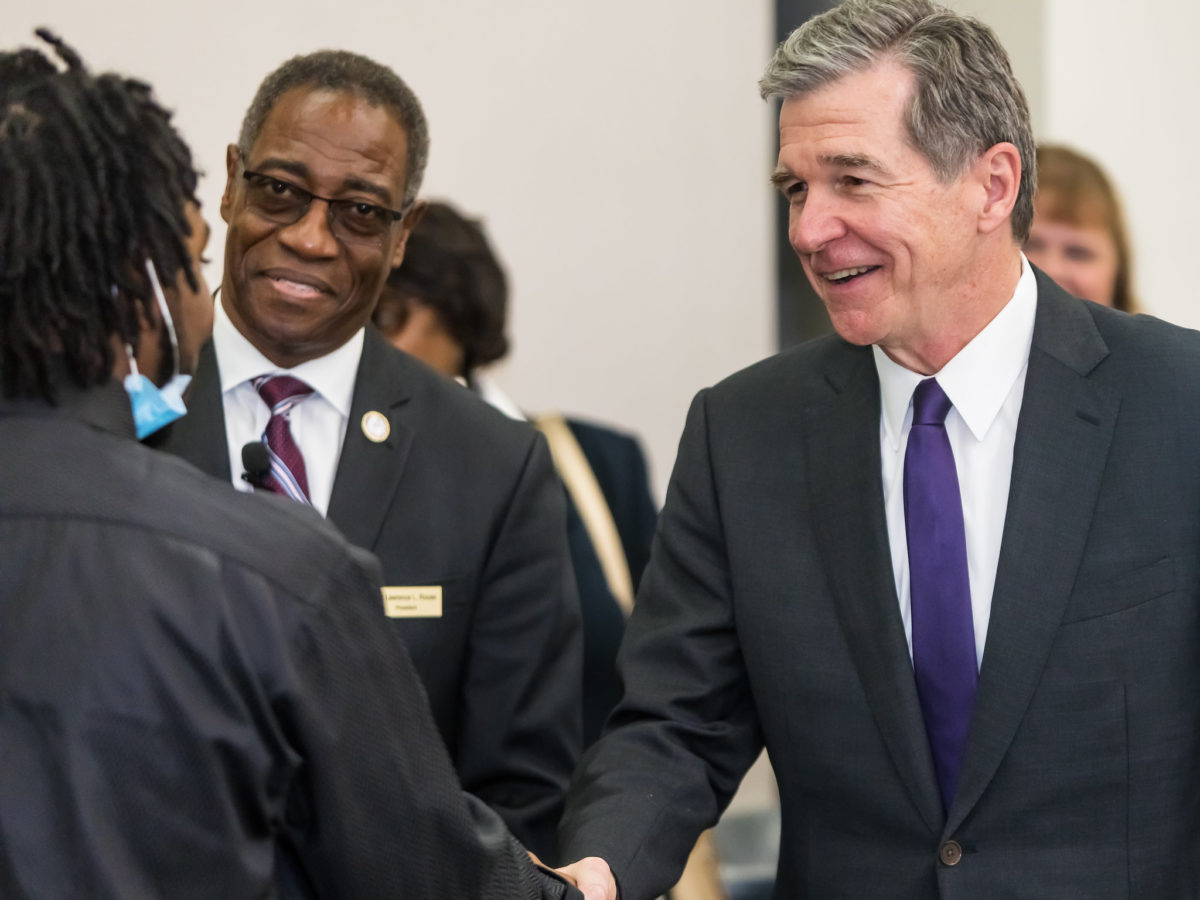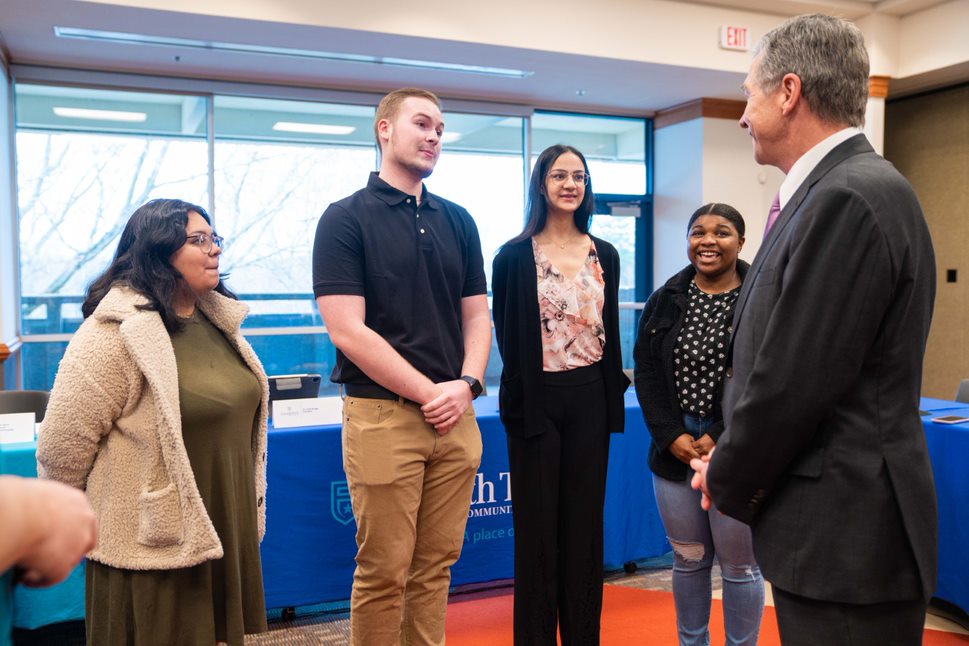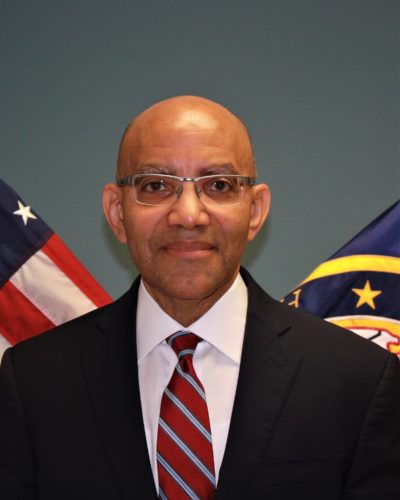
Share this story
- “I wanted to be a part of it because, you know, saving money is always a good thing,” said Longleaf recipient Renuka Khatri. “You can do the same exact education but with no cost at all.”
- Eligible North Carolina high school seniors graduating in 2022 can receive $700 to $2,800 per year for a total of two years to enroll in one of the state’s 58 community colleges. Learn more here.
|
|
When Forsyth Technical Community College offered free tuition to North Carolina high school graduates last year, the college saw enrollment among recent high school graduates increase nearly 20% from before the pandemic.
“This was astonishing,” said Devin Purgason, the director of college relations, marketing and communication at Forsyth Tech. “And we realized that we had to continue this important work.”
Forsyth Tech used a combination of funding, including the Longleaf Commitment Grant and federal aid, to offer free tuition to any 2021 North Carolina high school graduate through its College Commitment grant program.
“We were really, really happy to be able to offer free college to all students that are 2021 graduates no matter their background,” Purgason said. “And we know a lot of these students probably would not have come to college if they did not have this opportunity with the free tuition.”
Gov. Roy Cooper launched the $31.5 million Longleaf Commitment in May 2021 to supplement the federal Pell grant and ensure recent North Carolina high school graduates from low- and middle-income families receive anywhere from $700 to $2,800 per year to go toward tuition and fees at the state’s 58 community colleges. The grant was funded using the Governors Emergency Education Relief (GEER) fund through federal COVID-19 relief packages. In November, the grant was expanded in the state budget to also include 2022 high school graduates.
Nearly $8.7 million in Longleaf funds have gone to more than 13,600 students, according to the governor’s press office. Of those students, 63% are from families with incomes less than $70,000 per year.
At Forsyth Tech, more than 1,000 students received grants totaling more than $435,000.
Now, the college is working to ensure 2022 graduates are aware of the expanded grant and the free tuition offered.
Sign up for Awake58, our newsletter on all things community college.
‘The same exact education but with no cost’
For Renuka Khatri, a first-year student studying science at Forsyth Tech, receiving the Longleaf grant greatly alleviated financial stress. Khatri plans to transfer to a university after her second year at Forsyth Tech and wants to work in health care — a field that is often expensive to pursue.
Khatri, who moved to Forsyth six years ago from Punjab, India, hoped to study close to her parents. Conveniently, Forsyth Tech is just 10 minutes away from her house.
Still, at first, she wasn’t really considering community colleges in her search. That changed when she saw a flyer about the Longleaf grant and heard from a cousin that tuition was completely free.
“I wanted to be a part of it because, you know, saving money is always a good thing,” she said. “You can do the same exact education but with no cost at all.”
After talking with an advisor, Khatri was shocked to learn everything was paid for — books, transportation, and fees, on top of tuition — as part of Forsyth Tech’s College Commitment.
“I’ve been paying $0.00 to the college so far,” she said. “So I’m very grateful for getting this opportunity.”
‘It’s very impactful’
In recent weeks, Cooper visited five community colleges to spotlight the program and encourage graduating seniors to apply.
So far, Cooper has visited Central Piedmont, Central Carolina, Forsyth Tech, Brunswick and Pitt community colleges.
“North Carolina’s community colleges are our not-so-secret weapon when it comes to building a talented workforce, and Longleaf Commitment grants are helping to make education and training more accessible and affordable,” he said in a March 3 release after his first visit to Central Piedmont. “These grants are already helping North Carolinians get the skills they need by making community college debt-free, and I encourage all eligible graduating high school seniors to take advantage of this funding.”

At Forsyth Tech, Purgason said the college is using “really aggressive marketing” to ensure students know about the grant.
Last year, the grant launched right before the end of the school year, which made marketing more challenging. Still, the college attended every local high school graduation with information about the grant. This year, it’s sending press kits to guidance counselors in addition to advertising online and on social media.
“We were actually told by the governor’s office that we were like the number two largest recipients of Longleaf dollars among the 58 community colleges, which is really surprising and great for us, considering we’re not the one or two biggest,” Purgason said.
Like other North Carolina colleges, Purgason said Forsyth Tech hopes to see comparable levels of funding offered to students long-term. Community colleges already aim to connect students and adult learners with training and opportunities for higher-paying jobs. Offering free tuition only helps community colleges in achieving that mission, Purgason said.
A 2015 Harvard University study found that Winston-Salem, located in Forsyth County, was one of the most difficult places in the U.S. to escape child poverty. If education changes lives — and Forsyth Tech’s leadership team strongly believes it does, Purgason said — then making it more accessible to more people is prudent.
“That’s the reason it’s so important to us, because we really are here to make a difference in the lives of our communities and the lives of our students,” he said of the Longleaf grant. “And we know that if these students can come through our halls, graduate with the credentials so they can make a family livable wage, that will help raise them to a better life.
“It’s our mission, it’s what we do,” he said. “This is just one of the creative ways that we’ve been able to accomplish that.”

For Khatri, the grant allowed her to focus on school, not finances. She’s received good grades both semesters and is involved in the college’s student government. She even plans to run for president next year.
As she prepares to apply to transfer, Khatri is grateful to worry less about money in making a decision.
Sometimes, she said, students might worry other people are in greater need and not apply for grants. “But this is for you,” she said. “If you need something, it is for you, and you can advocate for it.”
Because of that, she hopes the Longleaf grant will continue and that more students will take advantage of it.
“It’s very impactful. A lot of students, when they go into the next semester, what they’re thinking about the most is how can we pay for it? How can my parents pay for it? The stress just lingers around your head, and it does impact your education,” she said. “But these years I’ve been at Forsyth Tech have been so worry free — I did not have to once think about money.”
Eligible high school seniors can apply for the Longleaf grant by filling out the FAFSA and enrolling in a community college.
Recommended reading




